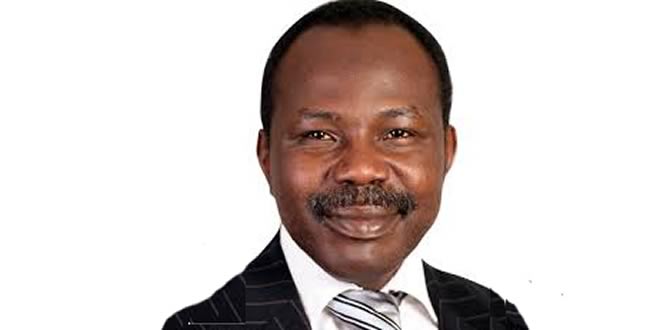A former AMCON chairman and former Legal Adviser to the All Progressives Congress (APC), Muiz Banire, says a revolution “as it happened in some notable climes” or “a benevolent dictator like Rawlings” might be required to reform Nigeria.
According to him, the reformation of Nigeria will remain a mirage until the leadership recruitment process of the country is capable of producing leaders that are sincere, focused, visionary and missionary – all of which he said the present electoral system cannot produce.
Banire made the remarks in an address he delivered at the 50th birthday of Niran Adedokun, entitled ‘Reforming Nigeria: The People or the Structure’.
He also did not rule out a call for divine intervention in the affairs of the country, stressing: “Without any of these, it will appear to me that the dream of reforming Nigeria will remain utopian.”

Banire said though Nigeria is said to run a democracy, the reality is that what is in practice is far from it, as “all the incidents of true democracy will appear lacking in our system,” which is why he said he prefers to describe Nigeria’s political system as ‘civil rule’.
“By the Constitution of Nigeria, leaders are expected to emerge through the ballot. Votes are expected to be cast by the electorate. This is where the people, by way of followership, matter. Regrettably, hardly do votes count in the country due to the inherent flaws in our electoral system.
“Apart from the various manipulations associated with the country’s election, viz; alteration and forgery of results, political thuggery, political mercantilism, godfatherism, lack of internal democracy and so many other forms of electoral fraud have all combined to render us a different species from the civilized part of humanity,” he agonised.
He also lamented the resistance mounted by the National Assembly to the latest introduction of the electronic transmission of results, “for obvious reasons of rigging elections.”
This he said could have enhanced the result transmission process and saved it from manipulations such as forgery and alteration, defacement of result.
“Thus, until we clean the various irregularities in the system, the electoral system cannot give us the desirable leader. Therefore, without such a leader, the various afflictions suffered by the nation cannot be cured, the implication of which is that the country cannot be reformed,” he noted.
He also lamented the dysfunctionality and several aberrations in the Nigerian Constitution, for which he said the calls for the jettisoning or overhaul of the document, or the restructuring of the nation are not misplaced.
He said the Nigerian constitution discourages competition and promotes dependency of the constituent parts on the centre, while the centre “is completely overcentralized and largely concerns itself with what ought not to be its business.”
Banire said: “The constitution itself is not only an unduly voluminous document; it is full of contradictions and various complexities. It contains so many unintelligible and controversial provisions. It addresses several issues that ought not to be in the document. It is one of the most voluminous constitutions I have ever come across.
“The American Constitution remains just a pamphlet as it addresses only fundamental issues of the union. That explains why multiple issues of state are able to be dealt with in a dynamic manner.
“In Nigeria, so many issues that must not feature in a country’s constitution feature therein and the amendment procedure is stringent.”
All these he said constitute an impediment to the progress of the nation and an albatross to the reformation campaign.
“The current imbroglio on the value added tax (VAT) is a testimony to the structural imbalance. In this regard, the system of government we are running is not only expensive but wasteful.
“The Exclusive Legislative List is unenviable while even the structure of the federal government is burdensome. How do you rationalize spending over 60 percent of revenue on recurrent, particularly emoluments of just a million civil servants in the federal service? This is absurd.
“That explains the various agitations for restructuring in the country, inclusive of the threat of secession.”
He also said the cost of governance is too high, including multiplicity of functions and agencies that the federal government has not been able to muster the courage to rationalize.
“The structure created by the constitution is a problem and needs to be fixed. Presidential system is too expensive for our economy. Cabinet and legislative functions might need to be part time with only sitting allowances paid.
“It certainly won’t be a bad idea to have a unicameral legislature,” he said.

